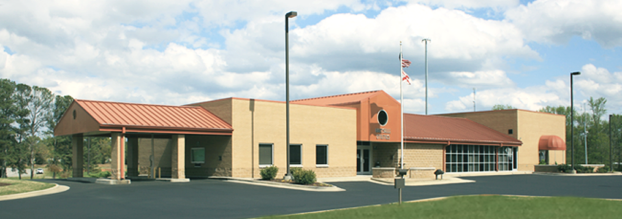State sues Hartselle Utilities over millions of gallons of sewer overflows
The state sued Hartselle Utilities last week for 137 sanitary sewer overflows dating back to 2015, including 6.7 million gallons of untreated sewage allegedly discharged this year.
The lawsuit by the Attorney General’s Office and the Alabama Department of Environmental Management also alleges the utility failed to give timely notice to the public, ADEM and the Morgan County Health Department on 35 of the overflows.
The complaint alleges Hartselle Utilities is liable for fines of up to $25,000 for each violation, which would total more than $4.2 million. The alleged violations stem from a discharge permit that generally prohibits HU from discharging sewage until after it has been processed through its wastewater treatment plant on Blue Ridge Road and requires timely notice when overflows occur.
“HU has reviewed the documentation thoroughly and disputes many of the allegations made by the attorney general in this lawsuit,” said Bob Sittason, general manager of Hartselle Utilities, in a written statement.
The sewer overflows listed in the complaint track the overflows HU is required to report to ADEM as soon as possible, and always within five days. These reports list the estimated volume of the discharge, the reason it occurred and the receiving creek.
Many of the largest overflows reported by HU to ADEM this year were from manholes at Crescent Drive Southwest, Groover Road Southwest and Metco Drive Southwest, all of which flow into Shoal Creek. The most recent was April 22.
According to the U.S. Environmental Protection Agency, sewer overflows contain bacteria, viruses, parasitic organisms, intestinal worms and molds. “As a result, they may cause diseases ranging in severity from mild gastroenteritis (causing stomach cramps and diarrhea) to life-threatening ailments such as cholera, dysentery, infectious hepatitis, and severe gastroenteritis,” according to an EPA advisory.
Most of the HU overflows came during heavy rains, and in its reports to ADEM, HU typically lists the amount of rain and identifies the cause of the overflow as “inflow and infiltration.”
According to Sittason, sanitary sewer overflows (SSOs) are often caused by inflow and infiltration, which is the result of stormwater runoff and groundwater entering the sanitary sewer collection system because of the age of parts of the system.
“Over a period of time in an aged sewer system, (inflow and infiltration) can enter a collection system due to loose joints, cracks and holes, broken and compromised pipes, broken or compromised customer cleanouts, service lines and older manholes that develop leaks,” Sittason said in the statement. Any of these issues can cause the capacity of the sewer main to be overwhelmed, he said, causing SSOs.
Sittason said the majority of the overflows listed in the lawsuit and 94.7 percent of the volume of the overflows came in the first four months of this year.
“The primary reason for the recent elevated overflow numbers is due to a number of isolated, independent, substantial and intense rain events that occurred in these four months,” he said.
Decatur Utilities, which was sued by ADEM and the Attorney General’s Office in a similar lawsuit in May 2019, also had numerous sewer overflows in January and February of this year, when heavy rains caused flooding in much of north Alabama. Tennessee Riverkeeper, an environmental nonprofit, joined the lawsuit against DU in October.
When HU identifies an SSO, Sittason said the department first assesses the cause and then corrects it immediately, if possible. HU employees then estimate the volume of discharge and clean, disinfect and remediate the overflow to maintain public safety and customer health.
Sittason said contrary to the complaint filed by ADEM, HU notifies the public after every SSO with signage at the manholes and door hangers to notify those who live in the area.
“In addition, we submit notification to the Alabama Department of Environmental Management and the Morgan County Health Department as required,” Sittason said.
Ongoing repairs
HU has identified individual manholes in areas where overflows are common during heavy rains. In some of these areas, he said, repairs have been made to limit inflow and infiltration.
Through funds made available through a Community Development Block Grant, Sittason said HU is replacing all customer service lines and sewer mains in the Northwest basin of its collection system.
“As a result of the SSOs this past winter, other projects have been identified, and we will begin this summer to replace some of the sewer mains that have failed over time,” he said. “In addition, we have several projects planned for this coming fiscal year to address the other impacted areas.
“HU judiciously considers the projects and the financial resources to fund these projects, taking into consideration our customers and sewer rates.”
He said the SSO problem is not new, and that the utility is working to resolve it.
“HU has invested hundreds of thousands of dollars to improve our wastewater collection system and is committed to make the necessary improvements to reduce or eliminate future SSOs,” Sittason said in the statement.
Sherry Bradley, director of environmental services at the Alabama Department of Public Health, said last month there is no evidence that the virus that causes COVID-19 can be transmitted through untreated sewage.
“There is no doubt that raw untreated sewage is a source of harmful microorganisms, including bacteria, viruses and parasites,” she said, but referenced a U.S. Environmental Protection Agency bulletin which advises “there is no evidence to date that COVID-19 virus has transmitted via sewerage systems, with or without wastewater treatment.” She said the World Health Organization reached the same conclusion.
Eric Fleischauer contributed to this story.
.



